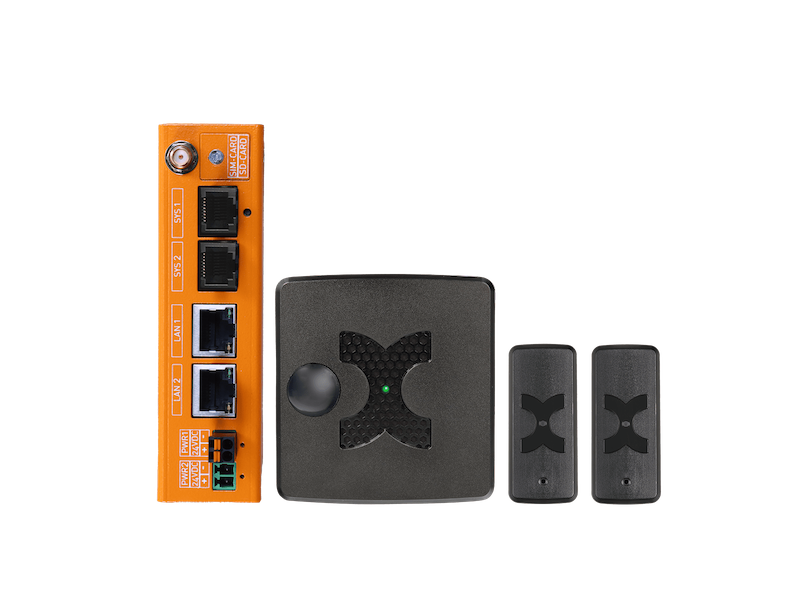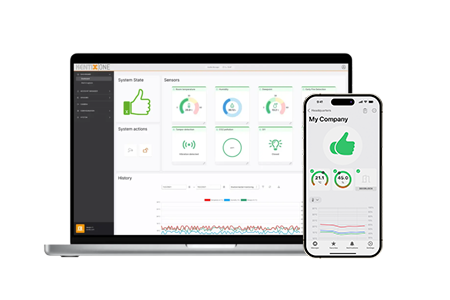Research at Kentix
Joint research work with Trier University of Applied Sciences


Kentix and Trier University of Applied Sciences can look back on many years of successful collaboration. They have been conducting joint research in the field of IoT (Internet of Things) and security technology since 2014. In addition to collaborating on projects, Kentix GmbH regularly employs working students. This offer, which is currently used by 2 students, is to be further expanded in the future.
Three campuses. One university. Exceptionally diverse.
With around 7,600 students, Trier University of Applied Sciences is the second largest university of applied sciences in Rhineland-Palatinate. A strong focus on application and practice, innovative teaching methods and the intensive combination of teaching and research are the hallmarks of our degree courses. With 88 degree courses on three campuses in the fields of mechanical engineering, electrical engineering, civil engineering, building and supply engineering, food technology, computer science, games, therapeutic sciences, economics, law, environment, architecture and design, we offer a uniquely diverse range of courses in the region.
WIR! - Change through innovation in the region

Research project on behalf of the Federal Ministry of Education and Research in cooperation with Trier University of Applied Sciences and BITO CAMPUS GmbH
Project duration: 2020 - 2030
The "WIR! - Change through innovation in the region" program provides the impetus for new regional alliances and sustainable innovation-based structural change in all structurally weak regions of Germany.
The aim of this project is to develop a strategy for the implementation phase of our digital.bewegt.nah project, which is supported by a broad base of stakeholders in our structurally weak Birkenfeld - Bad Kreuznach region. The aim is to create a regional innovation environment for the entire region. The BITO CAMPUS as a start-up center and the Environmental Campus Birkenfeld as the region's university represent the nucleus of innovation in rural areas, which should drive the transformation of the region into an innovation region in the West. Key areas of this transformation are the Internet of Things (IoT) and artificial intelligence (AI) with a focus on logistics and mobility.
The project is in the concept phase until 2021, and regional partners are being sought to implement it.
More information about the project can be found on the WIR! project website.
IoT Pilot - Internet of Things platform to strengthen innovation in rural regions and small towns
Research project in cooperation with Trier University of Applied Sciences on behalf of the Federal Ministry of Food and Agriculture.
The digital transformation of the economy and society is in full swing and will intensify in the coming years. The networking of the analog and virtual worlds will play a key role in this. The Internet of Things (IoT) forms the basic technology for many new application ideas and business models.
In this transformation process, medium-sized companies are acutely threatened by a shortage of skilled workers, as there are few graduates of computer science courses specializing in the field of IoT. These few graduates are then often headhunted by large corporations to the metropolitan regions and are no longer available to smaller companies in rural areas.
The IoT Pilot project aims to offer a solution that makes it easier for SMEs to access the Internet of Things and accelerates the development of initial prototypes (rapid prototyping). Existing specialists are also to receive further training, making it easier to get started with the new IoT technologies.
More information can be found on the IoT Pilot website.
DREI - Privacy-respecting detection of domestic offenders

Research project on behalf of the Federal Ministry of Education and Research Project duration: July 2016 - January 2019 The aim of the DREI project is to further develop security information and event management systems so that insider attacks can be detected under legally compliant conditions. The data protection-friendly recording and storage of security events plays a major role in this. By disclosing identities as required and detecting anomalies, insider activities can be uncovered without violating data protection requirements.





